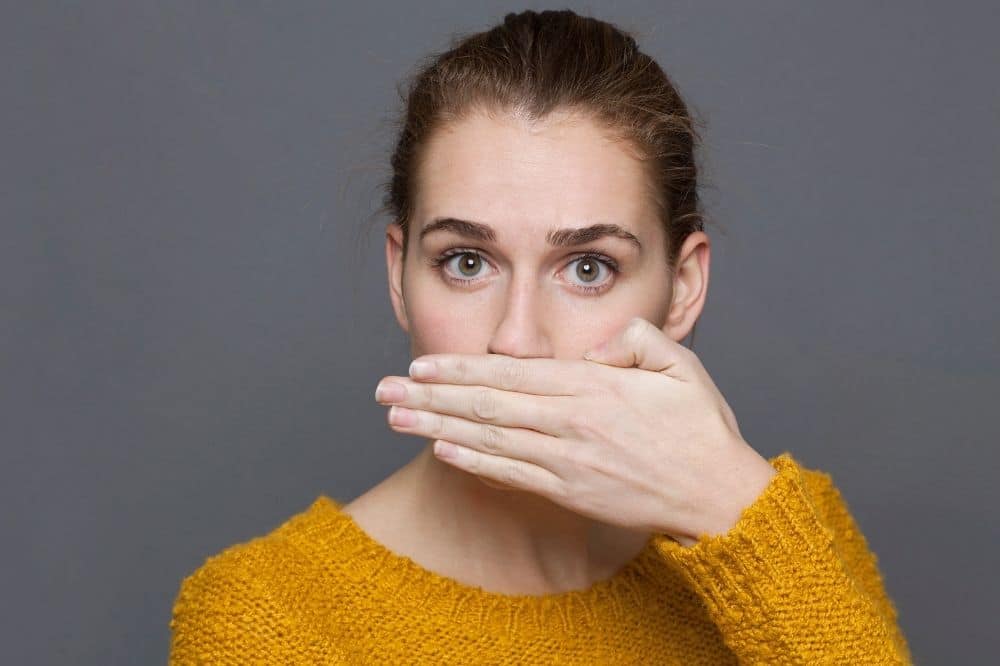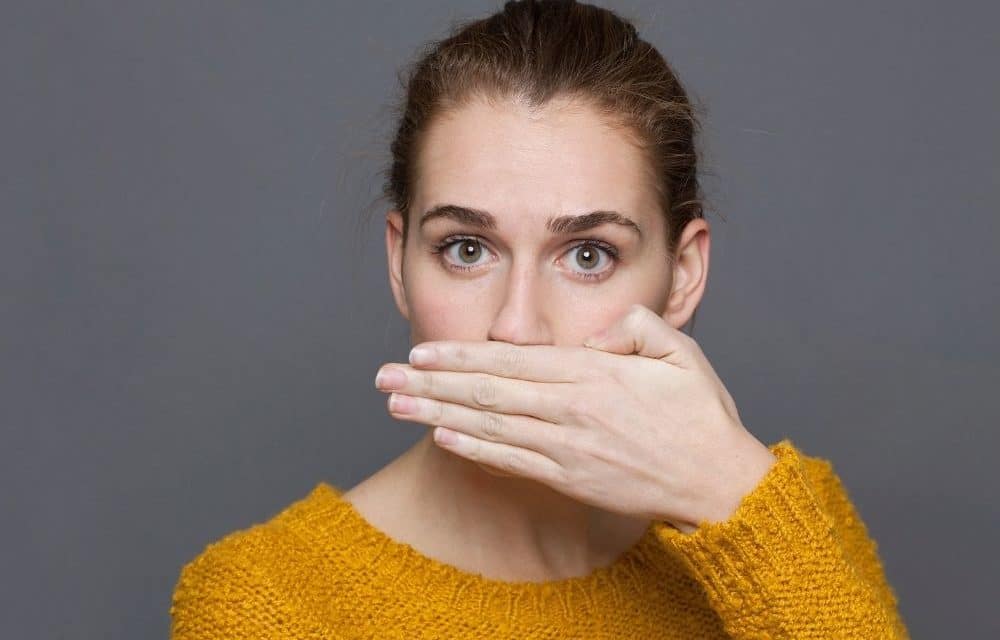
When it comes to bad breath, we’ve all either experienced it ourselves or know someone who has been embarrassed by it at least once in their lifetime.
Sometimes referred to as halitosis, bad breath is usually a temporary problem that is noticed in the morning after waking up or after eating a meal that is heavy in pungent flavors like garlic or onion. In these cases, proper oral hygiene can eliminate it.
However, in cases where it has become a chronic condition, there is usually an underlying health problem present.
What Are The Symptoms of Bad Breath?
In addition to a bad odor coming from the mouth, you may also have a bitter, sour, or metallic taste in your mouth that doesn’t go away with proper brushing, flossing, and mouthwash use.
Other symptoms of bad breath include:
- The need to clear your throat frequently due to the buildup of thick saliva.
- Bad morning breath that does not disappear.
- Frequently occurring post-nasal drippage into the throat.
- A buildup of tartar and plaque around the teeth and gum line.
- A white coating of bacteria near the back of the tongue.
What Causes Bad Breath?
In most cases, the bad breath is caused by sulfur-producing bacteria that sit on the surface of the throat.
However, other major causes include:
- Dry Mouth: when the saliva glands in your mouth do not produce enough to properly cleanse the mouth out of food particles, bad breath can result. Salivary gland conditions, sleeping with your mouth open and some medications can cause dry mouth.
- Poor Dental Hygiene: in not following proper dental hygiene measures, food particles become trapped in the mouth and decay. Bacteria will feed on the food and produce waste. Both of these will cause unpleasant odors. Beyond this, plaque buildup can cause cavities and infections in the teeth which can also cause bad breath.
- Gum Disease: if your gums bleed easily or become red and swollen, you may have gingivitis. This is caused by plaque that isn’t properly removed and can result in both bad breath and a condition called “trench mouth”. With trench mouth, you may experience fever, fatigue, bleeding and intense pain.
- Diabetes & Liver/Kidney Disease: individuals with liver or kidney diseases may have bad breath as their body cannot properly filter out bad toxins in the body. Those with diabetes may also experience bad breath since they are at a higher risk for gum disease.
- Tonsil Stones: if your tonsils were never removed, food can get stuck and harden inside them as calcium deposits. Also called tonsilloliths, if left untreated, can cause a bad odor that doesn’t go away.
- Smoking/Tobacco Use: regular use of cigarettes, smokeless tobacco, cigars, and snuff puts the body at a higher risk for certain diseases that can cause bad breath. This includes diseases such as oral and throat cancers, periodontal disease, and gum inflammation.
You may also develop bad breath if you have a sinus infection, sleep apnea, or an upper respiratory infection like chronic bronchitis.
While there is no one treatment for bad breath, proper dental hygiene and resting underlying medical health conditions can help improve your breath.
If you’d like to come for a dental visit and/or have any questions, feel free to get in touch today.





